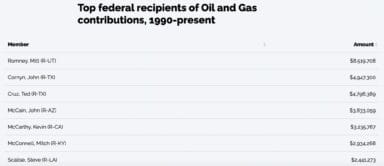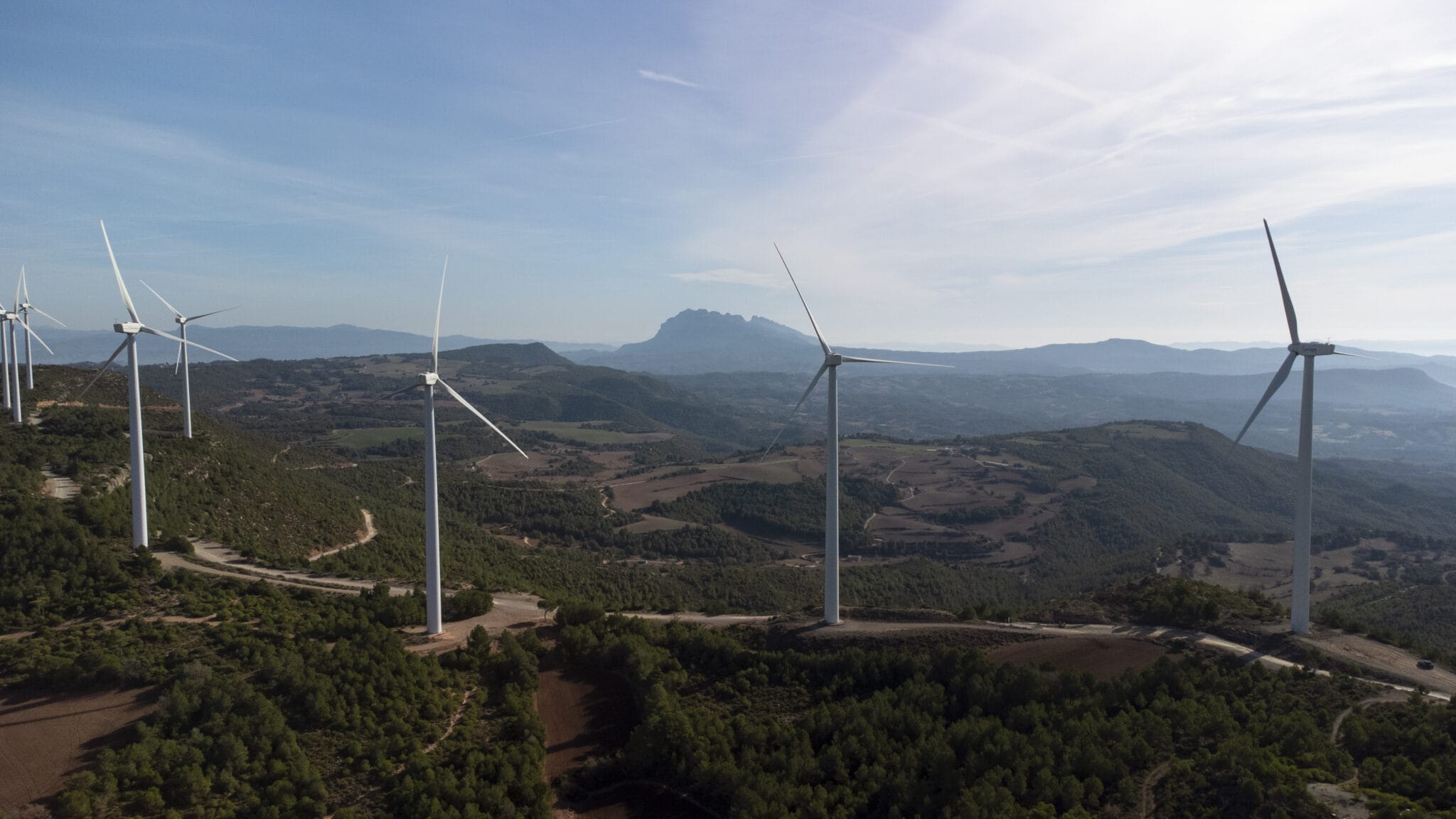News emerged last week that the world might have turned a corner in the effort to preserve a livable planet. A peak in carbon dioxide emissions could mark a pivotal shift in the climate battle. It’s important for journalists to convey the importance of this news — and to understand what it does and doesn’t mean.
The New York Times reported on May 30 that “global carbon dioxide emissions may have peaked last year.” The Times attributed this eye-catching finding to a new BloombergNEF report, which maps out two credible scenarios: one in which governments take aggressive action to get to net zero emissions by 2050, and one in which emissions fall only by economic forces and technical innovations. In both scenarios, BNEF projects that “energy-related” global CO2 emissions peaked in 2023 and will fall for the rest of the decade.
These projections will obviously need to be confirmed by real-world measurements. But the global NGO Climate Analytics released a report last year calculating a 70% chance that CO2 emissions will start falling this year “if current clean technology growth trends continue and some progress is made to cut non-CO2 emissions.” The International Energy Agency, meanwhile, predicts that global fossil fuel demand — the number one driver of CO2 emissions — will peak by 2025.
There are a couple important caveats. The text of the BNEF report does not explicitly mention that emissions peaked in 2023 — there is always a possibility those projections could change. And the peak refers only to emissions from power plants, vehicles, buildings, and other elements of the energy system, which make up about 80% of the world’s CO2 emissions.
Nevertheless, a peak could be a big deal. The BNEF report shows that aggressive actions could further reduce emissions to net zero by 2050, although global temperatures would still rise to 1.75 degrees Celsius above pre-industrial levels, overshooting the Paris Agreement’s 1.5-degree-C target.
But peaking annual CO2 emissions is only a first step toward what scientists say is required to avoid a catastrophic overheating of the planet. Think of the atmosphere like a bathtub close to overflowing, while annual emissions are the water coming out of the tap. Until we stop annual emissions, the level of water in the tub will keep rising. And even if we turn off the tap, the tub will still remain dangerously full. So, if and when annual emissions go to zero, humans must also figure out ways to “drain the bathtub” by extracting CO2 from the atmosphere.
All this provides journalists with an opportunity to do constructive and rigorous climate solutions reporting. It’s important to share this new data with audiences and carefully explain what it does and doesn’t mean. The road ahead remains long and challenging, but the new data suggest that cutting emissions is not only a planetary imperative but an achievable goal. That’s good news.
From Us
Local journalists. We’re launching Locally Sourced, a newsletter to help journalists make the global issue of climate change resonate with local audiences, later this month. Sign up.
War and climate. Read key takeaways or watch a recording of “War and Climate Change,” a one-hour CCNow press briefing that explored how conflict and climate are linked. Take me there.
Noteworthy Stories
No fossil fuel ads. In a blistering speech marking World Environment Day, UN Secretary-General António Guterres blasted fossil fuel companies as “enablers to planetary destruction” and called for banning their advertising. Noting that some governments have restricted advertising tobacco because it harms human health, Guterres urged “every country to ban advertising from fossil fuel companies. And I urge news media and tech companies to stop taking fossil fuel advertising.” By Jamey Keaten at the Associated Press…
Public campaign. US billionaire Leonard Leo, who used his dark money network to support the installation of three recent Supreme Court justices, is urging the court to put an end to the climate damages lawsuit that Honolulu, Hawaii, has filed against oil majors. The court is expected to discuss whether they’ll review the Honolulu case June 6. By Charisma Madarang and Andrew Perez at Rolling Stone…
Climate refugees. Deadly flooding in southern Brazil last month has led hundreds of thousands of people to leave their homes; many will not return, citing safety reasons. “Brazil is not going to be a one-off,” said Andrew Harper, a senior official at the UN High Commission for Refugees. “What we are seeing is the start of something that will become more frequent and more extreme.” By Marina Dias and Terrence McCoy at The Washington Post…
Youth activists. Concerned, overwhelmed, determined, frustrated, and hopeful are some of the feelings young climate activists from Belgium, Mexico, the UK, India, and the US share as nearly half the world heads to the polls this year. By Damian Carrington and Damien Gayle at the Guardian…
Talking climate. “Approach people with an open mind and with respect” and “talk about electrification.” That’s some advice on how to talk with friends, family, and others about the climate stakes of the 2024 elections. By Osha Davidson at Yale Climate Connections…
Resources

Source: OpenSecrets
Big Oil lobbying. OpenSecrets published a new resource, the Climate Issue Profile, that “exposes the financial forces shaping energy and environmental policy,” in the US and includes fossil fuel contributions to members of Congress.
Trauma awareness. Reporting Trauma Aware Journalism, a project of the Dart Center for Journalism & Trauma, CBC/Radio-Canada, and the Canadian Journalism Forum on Violence and Trauma has launched a “news industry toolkit” with videos, study guides, and tip sheets for reporters.
Caribbean reporters. Climate Tracker Caribbean has a new guidebook for climate reporters in the Caribbean.
Carbon trading. Inter Press Service has a new explainer, “Understanding Carbon Trading and its Rationale.”
Industry News
Oil ads pulled. Reuters and The Financial Times removed ads sponsored by Saudi Aramco after a complaint that they misled the public by portraying the world’s largest oil company as a climate advocate. Reuters also pulled a podcast on climate solutions that its brand studio produced for Saudi Aramco.
Local news and resilience. Strong local reporting increases support for basic infrastructure improvements and holding leaders accountable, both of which are becoming more critical amid a deepening climate crisis, according to a University of California, Los Angeles study.
Journalist threats. Nearly 40% of journalists worldwide covering climate and environmental issues have been threatened for their work, finds a global survey by Internews’ Earth Journalism Network (EJN) and Deakin University.
Via Social
CBS Evening News with Norah O’Donnell examines the fingerprint of climate change on this week’s heat in the western US, using the Climate Shift Index.
Events
Food solutions. Civil Eats is holding an email-based “crash course” on climate solutions in food and farming during June. Learn more.
Post-EU elections. Following EU elections this week, Clean Energy Wire will hold an event, “CLEW Press Club: What’s next for energy & climate in Europe?” on June 10. RSVP.
Reproduction and climate. Grist is holding webinar “High Risk: How Climate Change Affects Fertility, Birthing, and Babies,” on June 11. RSVP.
Women leaders. Women’s Earth Alliance is holding a press briefing, “Voices Unearthed: Shifting the Narrative on Women Grassroots Leaders in the Climate Movement” on June 12. RSVP.

Climate happy hour. CCNow and Climate Central are co-hosting a happy hour at the American Meteorological Society Broadcast Conference in Myrtle Beach, S.C. June 12.
Health & climate. Mongabay is holding a webinar, “How to Cover Planetary Health,” on June 17. RSVP.
Climate festival. London Climate Action Week “with a focus on finding global solutions to climate change.” In-person and virtual. June 22-30.
Actors’ climate voices. The Hollywood Climate Summit 2024 will bring together professionals across TV, film, gaming, and more to explore Hollywood’s role in the climate movement. In-person and virtual. June 25-28.
Jobs, Etc.
Jobs. Bloomberg is recruiting a weather reporter (New York City). CNET is hiring an energy editor (Louisville, Ky. or remote). The Guardian is hiring an editorial visuals designer (New York City). The New Lede is looking for a part-time environmental news reporter (remote). The San Francisco Examiner is recruiting a news editor.
Climate fiction. Grist is accepting submissions for its “Imagine 2200: Climate Fiction for Future Ancestors” short story contest. Submit by June 24.
Fellowships. Arena for Journalism in Europe is offering fellowships for individuals and teams who want to work across borders on a climate story. Apply by June 25.
